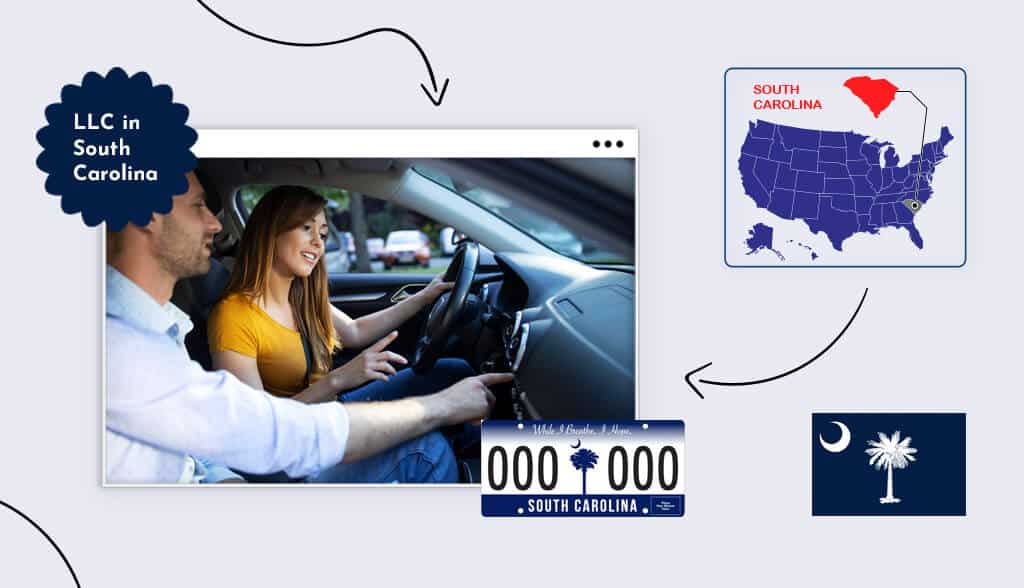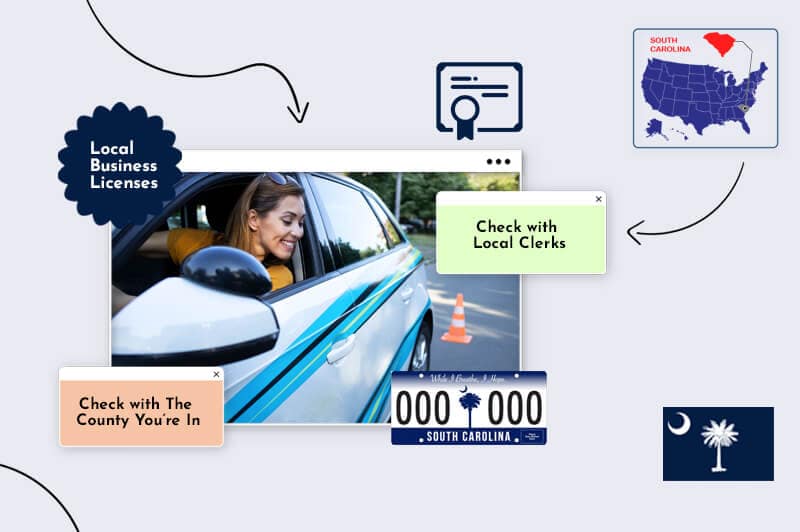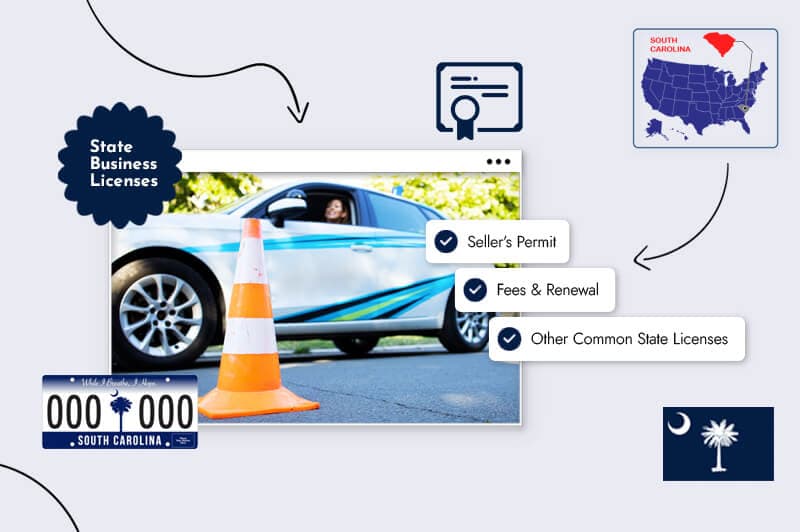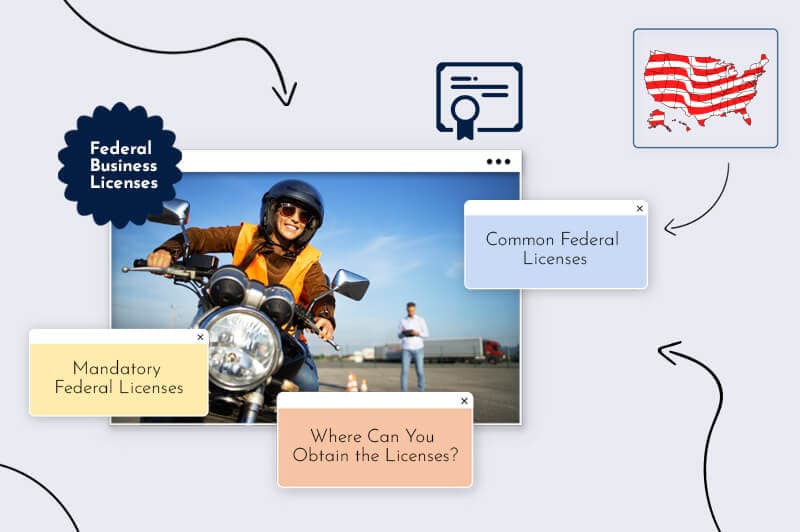
Setting up an LLC in SC is easy. You can follow our step-by-step guide to choosing a business name, filing articles of organization, selecting a registered agent, creating an operating agreement, applying for an employer identification number, and understanding how your LLC will be taxed.
Once you’ve got your South Carolina LLC set up, you’ll be ready to apply for business licenses and permits from the state, local, and federal governments.
This post will answer your questions about LLC licenses and permits, show you how to find out which ones you need to operate your business, and point you to sites where you can apply for your licenses or get more information.
Business licenses from federal, state, or local governments give you permission to operate your LLC in the geographical areas that the licenses cover.
South Carolina does not issue a general statewide business license, so you don’t have to worry about that. However, many counties, cities, and towns within the state do require you to get a local business license if you conduct your business there or if that’s the location where your business is physically located.
Permits are similar to business licenses. The difference is that permits have to do with safety and typically require that your business pass an inspection.
Check with the counties, cities, and/or towns where you’ll be doing business or where your LLC is located to find out if you need local licenses and permits and, if so, what you need to do to register. Most of South Carolina’s municipalities have systems set up where you can register online.
In South Carolina, the penalties for failing to obtain a required business license are steep.
If you start operating your business before you get your license, you could have to pay fees and penalties for the current year and up to three prior years.
If you outright refuse to get a required license, you’ll be summoned to appear in Municipal Court. You could be fined up to $500, sent to prison for up to 30 days, or both–for every day that you are in violation.

Each city and town in South Carolina have its own procedures for getting business licenses and permits. The town clerk can tell you what you need and what you have to do to obtain it. The South Carolina government’s Business One Stop site has put together a useful list of city contact information.
Examples of LLCs that may need local licenses include contractors, businesses with food trucks, and online businesses. Many towns and cities require that all businesses operating within their limits get a general local business license.
Only nine counties in South Carolina require a county business license. Counties with asterisks in the county resource list on the Business One Stop site are the ones where licenses are needed. You should also double-check directly with the county office in case the resource list is not up to date.
LLCs that may need permits include those that are engaged in building or repairs, organizations that solicit charitable donations, precious metal dealers, and businesses operating out of a home.

If your LLC sells tangible personal property within South Carolina, you must get a seller’s permit. This is sometimes called a “retail sales tax license” or a “sales tax permit.” You have to receive the permit even if you are selling online or selling infrequently within the state.
“Tangible personal property” refers to things that exist physically. You can touch them or otherwise perceive them with your senses.
Retailers have to collect sales and provide taxes for the state and, sometimes, for the county.
Retailers from out of state who sell within South Carolina or have certain other business contacts are also required to purchase a seller’s permit and to collect South Carolina use taxes.
You can apply for a South Carolina seller’s permit online using the MyDORWAY page on the South Carolina Department of Revenue’s website.
Retailers must pay a fee of $50 for each seller’s permit and must have a separate permit for each business location.
Artists and craftspeople selling their own creations at festivals or shows pay $20 for a permit for each location.
You must receive the seller’s permit before you make any retail sales. However, you don’t need to renew the permit unless the business ownership changes. In that case, the new owners must apply for their own permit.
Although South Carolina does not require any general statewide business licenses, the state does require special licenses for certain types of businesses. These include:

Most small businesses won’t need a federal license. Only those whose activities are regulated by federal agencies will have to apply for a license from the federal government.
Common types of business activities that require federal business licenses because they are regulated by the federal government include:
To obtain a federal business license, you usually go through the relevant regulator.
For example, if your business is involved in aviation, you’d get a license from the Federal Aviation Administration (FAA). If you’re manufacturing or selling alcoholic beverages, your license would come from the Alcohol and Tobacco Tax and Trade Bureau (TTB).
The Small Business Administration has a list of the types of businesses that need federal licenses and which agencies to apply to.
Each type of license will have its own filing requirements. However, you can expect that you’ll usually need to provide certain basic information about your LLC, such as:
Obtaining all the necessary licenses and permits is one more step towards making your LLC legitimate and getting it off the ground. Make sure that you check with the clerk for your county and city or town. They will be able to help you fulfill your local requirements.
You’ll also need to get a seller’s permit if you plan to have retail sales within South Carolina and federal licenses if your business will operate in regulated areas.
If you have more questions, you can get free help from the South Carolina Business One Stop. They would be glad to provide answers by phone, chat, or email.
Congratulations on getting one step closer to making your business dreams a reality!
This portion of our website is for informational or educational purposes only. Tailor Brands is not a law firm, and the information on this website does not constitute legal advice. All statements, opinions, recommendations, and conclusions are solely the expression of the author and provided on an as-is basis. Accordingly, Tailor Brands is not responsible for the information and/or its accuracy or completeness. It also does not indicate any affiliation between Tailor Brands and any other brands, services or logos on this page.
Products
Resources
©2025 Copyright Tailor Brands